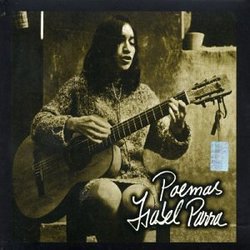| All Artists: Isabel Parra Title: Poemas Members Wishing: 2 Total Copies: 0 Label: Wea International Original Release Date: 10/28/2003 Release Date: 10/28/2003 Album Type: Import Genres: International Music, Latin Music Styles: South & Central America, Chile Number of Discs: 1 SwapaCD Credits: 1 UPC: 5050466204028 |
Search - Isabel Parra :: Poemas
 | Isabel Parra Poemas Genres: International Music, Latin Music
Daughter of Violeta Parra, New Chilean Song Movement's Most Significant Figure, Isabel Parra Always Lived in a Musical Environment. At the Age of 13, the Artist Made her Debut Record, with her Mother Playing Guitar. In 196... more » |
Larger Image |
CD Details
Synopsis
Album Details
Daughter of Violeta Parra, New Chilean Song Movement's Most Significant Figure, Isabel Parra Always Lived in a Musical Environment. At the Age of 13, the Artist Made her Debut Record, with her Mother Playing Guitar. In 1964, Along with her Brother Angel Parra, She Founded Pena De Los Parra, which Became an Important Meeting Place for People Related to Local Culture. During her Exile, Isabel Parra Continued her Solo Career in the Latin Neighborhood of Paris. In 1988, her Contribution to Chilean Culture was Recognized with a Golden Laurel Award. Parra Sets her Music to Poems by Pablo Neruda (Chile), Silvio Rodriguez (Cuba), Federico Garcia Lorca (Spain), Luis De Gongora (Spain), Juana De Ibarborou (Uruguay), Bertold Brecht (Germany), Alfonsina Storni (Argentina), Gabriela Mistral (Chile), Arthur Rimbaud (France) and San Juan De La Cruz (Spain).

 Track Listings (17) - Disc #1
Track Listings (17) - Disc #1